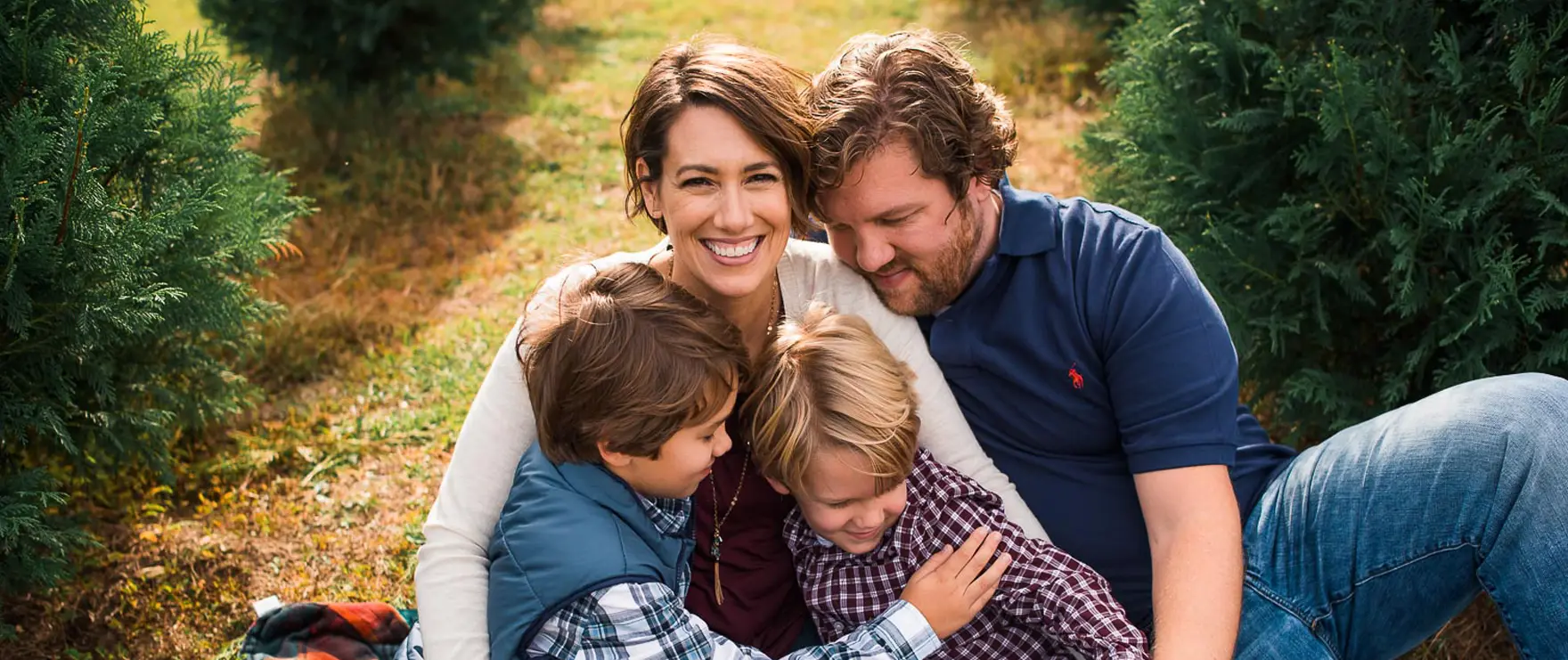Family Services
The Family Services Department is contracted through the Delaware Department of Prevention and Behavioral Health Services (DPBHS) to provide a selection of community-based behavioral health care throughout the state of Delaware (all three counties) with extended hours to accommodate families with varying scheduling needs. Our services continuum includes outpatient family therapy, Mobile Outpatient Services, Therapeutic Support for Families, and Family-Based Mental Health Services. We offer a full spectrum of evidenced-based clinical services proven effective for engaging the whole family unit, as well as other key support systems, in an integrated form of treatment covering all areas of dysfunction. This includes a variety of therapeutic modalities along with the ability to make all appropriate referrals to outside professional providers and or community resources as indicated. Some of the services we provide are:
• Intensive, in-home individual, family, and couples’ therapy
• Office-based and mobile marriage (couple) and family therapy for various age groups
• Linkage to appropriate family services for both adults and children
• Family skills development
• Community support in various social settings
• Integrated case management and coordination of care
• 24/7 on–call crisis stabilization supports serious behavioral health issues
• Psychiatric referrals
Mobile Outpatient Services (MOPT)
The Family Services Department expanded to offer Mobile Outpatient Services (MOPT) in mid-2018. We currently have two clinicians working throughout the state to provide 4-6 hours of therapeutic contact with clients within their home, school and community. Mobile outpatient therapy is an individualized treatment which provides services in the least restrictive environment possible (office, home or community settings) to address a wide variety of concerns, from behavior problems, relational conflicts to mood issues like depression or anxiety. Clinicians use a variety of treatment modalities but focus on brief family-therapy interventions to elicit change in children, youth, and their families. Services with mobile outpatient typically last between 8-12 months and can be referred to a higher level of care to FBMHS or lower level of care to traditional outpatient services.
Therapeutic Support for Families (TSF)
TSF provides psycho-educational, therapeutic, and supportive services for parents/caregivers and youth who are participating in treatment services. TSF services are delivered in conjunction with other medically necessary treatment services. TSF services support the treatment goals identified in the youth and family’s treatment plan. The goal of parent and youth treatment support services within CORAS is to create and/or expand the formal and informal support systems of a family. A separate paraprofessional works with the treatment providers to create clear goals and objectives. This supportive relationship helps develop goals, provide education, teach necessary skills including coping skills, build upon current strengths to grow confidence, and in general serve as an advocate for the family. Between the paraprofessional, provider, and family, a schedule is created to help the family accomplish their goals and gain needed supports in a timely manner.
Family-Based Mental Health Services (FBMHS)
Our Family-Based Mental Health Services teams assist children between 3 and 17 years of age and living with their parents, guardians, or caretakers and have serious behavioral health issues. These children are also at risk for out-of-home placement into residential treatment facilities, psychiatric hospitals or foster placements due to their symptomatic behaviors and/or the dysfunction of the family system that contributes to the behaviors. FBMHS is best aligned to treat these children and adolescents in their homes, communities and schools thus allowing the youth to remain in the home.
Our FBMHS program is committed to delivering preventive and behavioral services and support geared toward strengthening and restoring healthy family relationships. We accomplish this by focusing on keeping families together and addressing issues from a holistic perspective using a multi-systemic treatment approach which is strength-based, trauma-informed, and culturally sensitive. Harnessing the healing power of families allows FBMHS clinicians to provide the guidance and therapy necessary for families and couples with children to navigate crises or difficulties, such as parent-child conflict, challenges at school, substance misuse, emotional and behavioral issues like depression or anxiety, marital problems or stress related to divorce/remarriage, and other circumstances which impact the entire family.
Our model relies on team-delivered services rendered at home, and in community and school settings. Its design integrates behavioral health treatment, the family, family support services, surrounding systems, and casework so that families may build trust and create unity while continuing to be able to care for their children and adolescents. These young people experience depression, anxiety, chronic acting out behaviors, aggression, social, coping and skill deficits, drug and alcohol abuse, and school truancy. They are frequently described as “hard to manage” by their parents. Often, their personality traits and their parents’ management skills are in friction with each other, and this leads to involvement of the youth/family with multiple systems. The FBMHS approach is designed to target all these areas of functioning by utilizing the Eco-systemic Structural Family Therapy (ESFT) approach, discussed further below. Overall, CORAS FBMHS approach utilizes an intensive, in-home, child-centered, and family-focused therapy model designed to help families overcome these barriers. FBMHS treats children and youth in their homes, schools, and other community settings, with the goal of allowing the child/youth to remain in the home with their loved ones.

